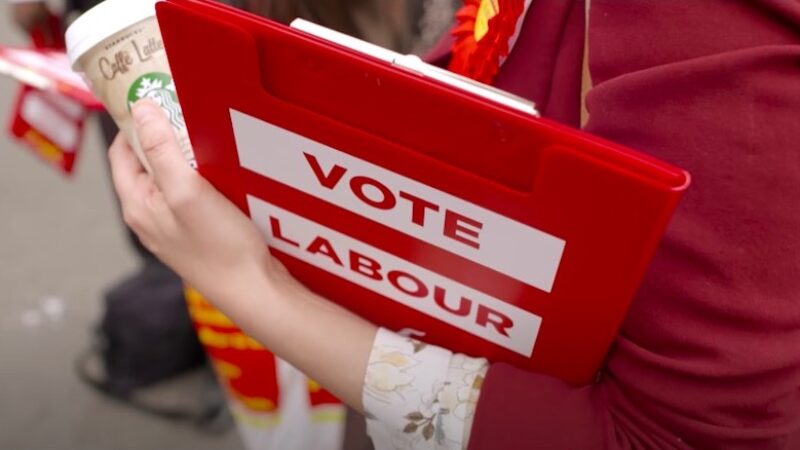
In 2015, I faced a new Tory candidate who presented himself in my constituency less than a year before the general election. Yet, by polling day, he had name recognition on the doorstep the like of which I had never seen in the four general elections I had previously fought. Facebook had by then – unknown to me – changed the rules of campaigning, facilitating contact with voters on a scale never seen before and enabling the communication of targeted messages both with individual voters and local community groups. A new candidate could, using these tools, be known fast and could develop a reputation upon which to build a political campaign.
At the next general election, Labour will have a large number of new candidates facing Conservative MPs elected in the 2019 landslide – Tory MPs who have been raising their personal profiles ever since. Labour must use online techniques to promote its new candidates. Campaigning from opposition using traditional canvassing methods has severe limitations.
In the 2015 general election, as I had done in all my elections, I pounded the streets with my dedicated team, knocking on doors that were often unanswered, desperately trying to accumulate knowledge of what voters wanted. At the same time, the Tories were using data accumulated by Facebook and other businesses to identify target issues and voters. They then delivered particular messages to them, such as their commitment to an EU referendum.
They were also able to reach more voters to promote their candidates through local community Facebook sites than was ever possible by conventional community campaigning. I saw remarkable levels of name recognition for my opponent who was selected less than a year before the election.
The result of the 2015 Tory campaign was the wiping out of Liberal Democrat MPs, especially in the South West of England, an unexpected Tory overall majority in the House of Commons and an EU referendum in 2016.
Like most Labour MPs, I was stunned at the 2015 result, but the election had, for me, begun the process of understanding that something profound was happening to the political campaigning that I knew. I realised that the methods Labour had used to win three general elections between 1997 and 2005 were now outmoded.
The shock of the 2015 general election was as nothing compared to the electoral earthquake that was the 2016 EU referendum. Again, I, like my colleagues, was campaigning conventionally, trying to approach voters at street stalls and delivering scattergun messages. It was only later that we discovered that both the Vote Leave and Leave.EU campaigns were pouring money into buying targeted Facebook ads, delivering uncontested messages to particular voters. These ads were often questionable and always controversial, and they were directed, individually, to those people judged as susceptible to specific campaigns following individualised surveillance of their internet use.
Like most Labour MPs, I had no idea what was going on with online campaigning. For me personally, I knew that something important had happened with Facebook and was determined to use it extensively in the next election, which I did in 2017. That decision was a big part of me retaining a marginal seat. I used it to deliver films of constituents endorsing me as a candidate, something which was actually illegal until the advent of social media platforms, as our only permitted political advertising on TV was the party political broadcast. However, it was not until I worked as a member of the House of Commons select committee investigating fake news and disinformation in 2018 and 2019 that I learned the enormity of what had already happened to elections both in the UK and across the democratic world.
I saw that successful campaigning had transformed since 2010. Now, online campaigning was vital. It could accumulate information from voters on a scale that could never be obtained by conventional canvassing. That information could then be used to message them individually with campaigns to which particular voters were especially susceptible. These techniques were at the heart of the successful campaigns in 2015 and 2016 that had secured victories for right-wing campaigns on both sides of the Atlantic. The political implications of this change had been seismic.
Few in politics realised the importance of the shift towards digital campaigning, and those who did were winning. Failure to regulate the online accumulation of data, secured without effective consent, and the unlimited spending on digital advertising that followed had changed the principles that had governed elections throughout my lifetime. Now, targeted information use supported by huge spending was deciding elections.
Along with the digital, culture, media and sport committee of which I was a member, the independent Information Commissioner and Electoral Commission called repeatedly for urgent electoral reform to cover digital campaigning following the Facebook/Cambridge Analytica scandal. But despite passing an Elections Act, the Tory government failed to regulate a system which was working well for them.
The fact is that the next general election will be fought under a largely unregulated, online electoral system that favours the Tories. They will continue to exploit questionable data use, backed by huge election spending, paid for with money from sources which are often unknown.
Labour must wake up urgently. The next election demands that the party uses the online weapons that have been used by the Conservatives to win elections since 2015. And, if it does get into government, Labour must put proper rules in place to safeguard democracy in the UK.




More from LabourList
‘AI regulation is key to Labour’s climate credibility’
Ben Cooper column: ‘Labour needs to rediscover its own authentic populism’
‘Westminster rethought: a new purpose built site and a museum of democracy’